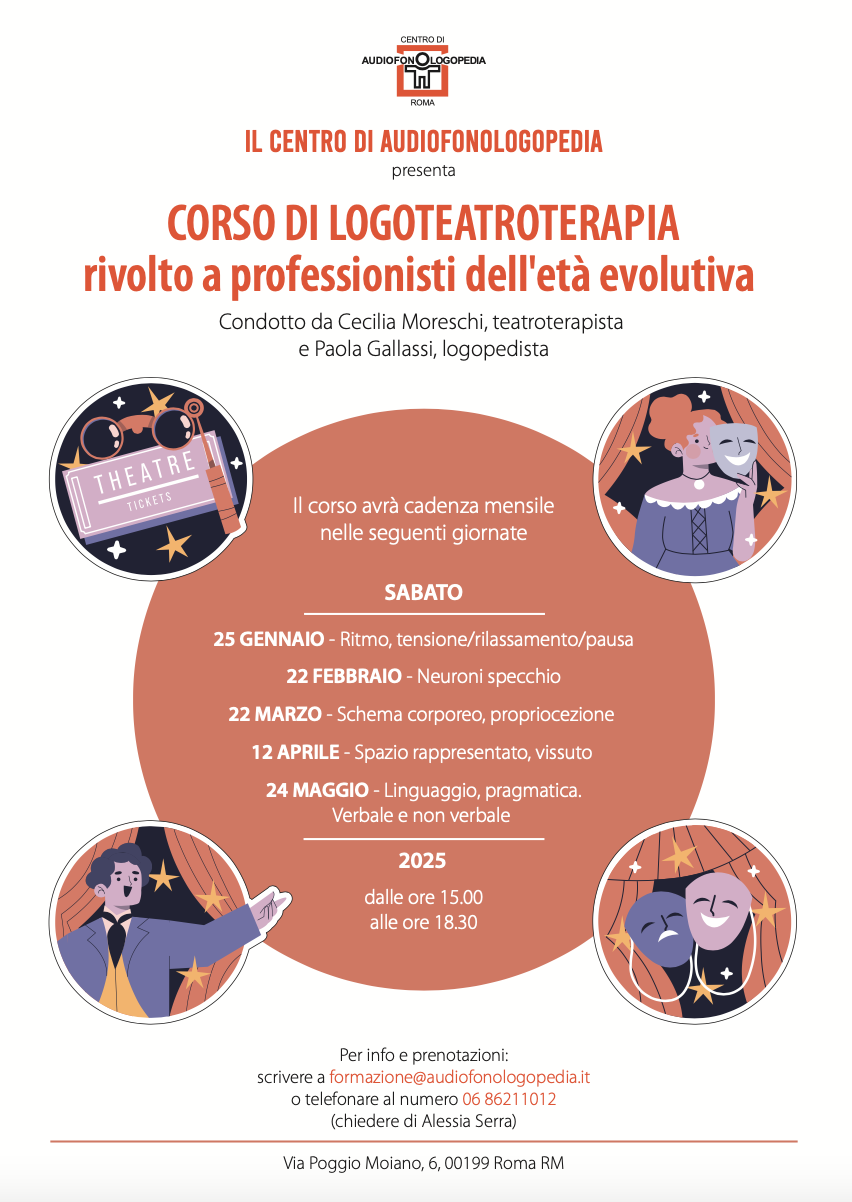#segnalazione

Nell'ambito della rassegna di teatro in lingua originale inglese al Teatro San Genesio, dal 23 al 28 Maggio va in scena un tributo al grande e controverso drammaturgo americano Edward Albee, scomparso recentemente, con la messa in scena di due atti unici tragicomici tra i più noti della sua vasta produzione, The American Dream e The Sandbox.
Lo spettacolo presentato dalla compagnia filantropica e di lingua inglese Plays in Rome/The Rome Savoyards è diretto da Sandra Provost e interpretato da Carolyn Gouger, Rishad Noorani, ShelaghStuchbery, Edoardo Camponeschi e Fabiana De Rose.
Entrambi gli atti unici The Sandbox e The American Dream, scritti rispettivamente del 1959 e 1961 e non a caso, spesso rappresentati assieme, hanno importato negli Stati Uniti il Teatro dell'Assurdo, in particolare di Jonesco e Beckett, esprimendo nella dialettica dei personaggi la crisi del 'Sogno Americano'. Un sogno che con il suo ottimismo, fiducioso impegno, investe la cultura americana del dopoguerra trasformando sempre più la sua forza programmatica iniziale in enfasi e culto dell'apparire.
Ciò dà origine a una sorta di 'doppio' del Sogno, quello iniziale fondato su ideali di libertà, democrazia, lavoro per tutti, nonché sulla costruzione di un mondo reale a essi corrispondente, e la sua degenerazione in un successivo 'Sogno' di bassi ideali utilitaristici, arricchimento arrivismo prestigio supremazia economica e sociale. I personaggi dell'opera attestano tale crisi attraverso la perdita di valori, di razionalità. La loro banalità si fonda su un'occulta ferocia, latente sotto le preoccupazioni fatue assunte come decisive, ma che in realtà affiora in situazioni verbali e lessicali tali da tradire un oscuro magma di grottesco horror. La scrittura scenica, tragicomica, si avvale dell'incrocio di linguaggi diversi: teatrale, televisivo, cinematografico. (Rif. Allì Caracciolo).
Un'analisi onesta e schietta, umoristica e diretta e ancora molto attuale della crisi di valori di una società.
THE AMERICAN DREAM
La storia si volge intorno a Mommy, una moglie impositiva, Daddy un padre sempre dimesso e Grandma, la nonna perspicace e intelligente. Mommy and Daddy siedono in un salone spoglio e parlano del nulla. Mommy, vorrebbe portare Gradma in una casa di riposo. Daddy, non reagisce particolarmente all'idea mentre Grandma esprime tutto il suo pensiero contrario con interventi comici e pungenti. Arriva a trovarli Mrs. Barker, signora dai modi impostati e perfetti, come si conviene nel suo ruolo di Presidente dell'Associazione delle Donne e volontaria di molte altre Associazioni. Nessuno sembra ricordare il motivo della sua visita, neanche lei. La matassa comincia a districarsi quando rimaste sole, Grandma le racconta la storia di un figlio adottivo di Mommy e Daddy e contestualmente arriva un nuovo visitatore, The Young Man, ragazzo giovane, bello e aitante, come si conviene ai giovani di questa cultura e società.
L'assurdità dei dialoghi comici e frizzanti rivela presto la contraddizione del perseguire ideali utilitaristici e dell'apparenza, a fronte della perdita di valori e del senso delle cose.
La contraddizione appunto del sogno americano, applicabile tuttavia e più in generale al tessuto sociale occidentale anche dei nostri tempi.
THE SANDBOX
Un giovane ragazzo bello e aitante si allena con esercizi sportivi. Mommy and Daddy, arrivano e capiamo di trovarci in spiaggia. Portano con loro Grandma e la lasciano immersa nella sabbia. Ricomincia tra loro un dialogo insensate mentre Grandma "gioca" nella sabbia, lamentandosi. Il ragazzo interviene con commenti apparentemente superficiali e disinteressati ma capiamo presto che la sua presenza ha uno scopo e che egli in effetti è "L'Angelo della morte".
Un atto unico breve che fornisce una cornice e una chiusura a The American Dream (nonostante sia stato scritto prima), quasi come uno scatto fotografico, con un epilogo surreale ma compiuto che conferma e ritrae il messaggio di entrambi i testi.
Lo spettacolo è prodotto in collaborazione con Samuel French Ltd e Josef Weinberger Ltd.
EDWARD ALBEE
Con una serie di atti unici scritti nell'arco di pochi anni e imparentati con il "teatro dell'assurdo" (The Zoo Story, 1958, prima rappresentazione a Berlino nel 1959; The Death of Bessie Smith, 1960 (La morte di Bessie Smith); The American Dream, 1961 (Il sogno americano)), Albee si è rivelato il più interessante commediografo del secondo dopoguerra americano e un originale interprete dell'alienazione dell'uomo contemporaneo. Il suo linguaggio e la sua tematica spregiudicati e anticonformisti rifluirono anche in Who's afraid of Virginia Woolf? (1962; Chi ha paura di Virginia Woolf?), acre e impietosa, quanto moralistica, demistificazione della "coppia americana", che dette all'autore un successo mondiale confermato da una trasposizione cinematografica interpretata da Richard Burton ed Elizabeth Taylor. Tra i lavori successivi si ricordano All Over (1971; Tutto finito), Seascape (1975; Paesaggio marino) e i discussi Lolita (1979), The Lady from Dubuque (1980; La signora di Dubuque), The Man with Three Arms (1982; L'uomo che aveva tre braccia). Con Three Tall Women (1991; Tre donne alte), Albee conquistò nuovamente le scene di tutto il mondo con una commedia caustica in cui tre donne rivivono insieme i ricordi della loro esistenza. Nel 1994 l'opera gli valse il suo terzo premio Pulitzer per il teatro. Albee si è dedicato anche al cinema, realizzando l'adattamento di The Ballad of the Sad, che è diventato un film con la regia di Simon Collow e l'interpretazione di Vanessa Redgrave.
Membro del Dramatists Guild Council, Albee è stato anche insignito di uno speciale Tony Award alla carriera (2005), della medaglia d'oro per il teatro dall'American Academy and Institute of Arts and Letters (1980), del Kennedy Center Honors e della Medaglia nazionale delle Arti (1996). Albee presiedeva la "Edward F. Albee Foundation", che sostiene il "William Flanagan Creative Persons Center", una colonia di scrittori ed artisti di Montauk, New York.
Nel 2008, in occasione del suo 80°esimo compleanno, The Sandbox e The American Dream furono rappresentati presso il Cherry Lane Theatre, storico teatro nel quale Albee stesso diresse una messa in scena dei due atti unici, molti anni addietro.
THE AMERICAN DREAM
A Comedy/One Act
The family consists of a dominating Mommy, an emasculated Daddy, and a clever and witty Grandma. Mommy and Daddy sit in a barren living room making small talk. Mommy, the domineering wife, is grappling with the thought of putting Grandma in a nursing home. Daddy, the long-suffering husband, could not care less. Grandma appears, lugging boxes of belongings, which she stacks by the door. Mommy and Daddy can't imagine what's in those boxes, but Grandma is well aware of Mommy's possible intentions. Mrs. Barker, the chairman of the women's club, honorary member of the community and idol to Mommy, arrives not knowing why she is there. Is she there to take Grandma away? Apparently not. It all becomes evident when Grandma reveals to Mrs. Barker the story of the botched adoption of a "bumble of joy" twenty years ago by Mommy and Daddy. Mrs. Barker appears to have figured it out when Young Man enters. He's muscular, well-spoken, the answer to Mommy and Daddy's prayers: The American Dream. It is gradually revealed that he is the twin of Mommy and Daddy's first child. As the first child was mutilated, he too was experiencing the pain and has been left as an empty shell of a man. He is introduced to the family as a suitable replacement for the original child. Grandma convinces him to assist in her master plan. She puts one over on everybody and escapes the absurdly realistic world which she finds so predictable.
A long-running Off-Broadway success.
"What counts is the fact that it is grandly funny." —NY World-Telegram & Sun. "The small change of ordinary conversation is turned on its head with a cynical innocence that makes for laughter, both ironic and offbeat." —NY Times.
THE SANDBOX
Drama/One Act
A Young Man in a spotlight is doing his exercises silently. A couple, Mommy and Daddy, appear to remark, dryly, "Well, here we are; this is the beach." The woman orders a clarinetist out onto the stage and commands him to play. The couple exits, then returns carrying Grandma and dumps her in a sandbox. Grandma begins to weave her history between the cool, indifferent patter of the people and the equally cool, but somehow more sympathetic, sounds from the clarinet. As Grandma covers herself with sand, it begins to dawn that the mysterious, cryptic athlete is much more than local color, and his conversation with Grandma is, in fact, prelude to his purpose. He is "after all, the Angel of Death."
The show is Produced by special arrangement with Samuel French Ltd and Josef Weinberger Ltd.
Edward Albee (1928 – 2016) was an American playwright known for many works among which The Zoo Story (1958), The Sandbox (1959), The American Dream (1961), Who's Afraid of Virginia Woolf? (1962), and A Delicate Balance (1966). Three of his plays won the Pulitzer Prize for Drama, and two of his other works won the Tony Award for Best Play. His works are often considered as frank examinations of the modern condition which makes them still very applicable and real in the present day. His early works reflect a mastery and Americanization of the Theatre of the Absurd that found its peak in works by European playwrights such as Samuel Beckett, Eugène Ionesco and Jean Genet.
Written in 1961, The American Dream is a satire on American family life, it concerns a married couple and their elderly mother. On a particular day, they are visited by two guests who turn their worlds upside down. Albee explores not only the falsity of the American Dream but also the status quo of the American family. As he states in the preface to the play, "It is (...) an attack on the substitution of artificial for real values in our society, a condemnation of complacency, cruelty, emasculation, and vacuity...." Press notes state: "It is a ferocious, uproarious attack on the substitution of artificial for real values, a startling tale of murder and morality that rocks middle-class ethics to their complacent foundations..."
Written in 1959, The Sandbox is a prelude to the themes addressed by The American Dream and indeed the two one-acts are often performed together. In The Sandbox, the married couple have brought the elderly mother all the way out from the city and placed her in the sandbox. Once again the interaction with other characters unveils the background stories and surprising finale.
A member of the Dramatists Guild Council, Edward Albee received three Pulitzer Prizes for drama—for A Delicate Balance (1967), Seascape (1975), and Three Tall Women (1994). He was elected a Fellow of the American Academy of Arts and Sciences in 1972 and in 1985, he was inducted into the American Theatre Hall of Fame.https://en.wikipedia.org/wiki/Edward_Albee - cite_note-19 In 1999, Albee received a Special Tony Award for Lifetime Achievement (2005); the Gold Medal in Drama from the American Academy and Institute of Arts and Letters (1980); as well as the Kennedy Center Honors and the National Medal of Arts (both in 1996). In 2008, in celebration of Albee's eightieth birthday, a number of his plays were mounted in distinguished Off Broadway venues, including the historic Cherry Lane Theatre where the playwright directed two of his early one-acts, namely The American Dream and The Sandbox.
Redazione
15 maggio 2017
Informazioni
Tributo ad Edward Albee
The American Dream & The Sandbox
Spettacolo in lingua inglese
Regia di Sandra Provost
Repliche: da martedì a venerdì ore 20,30; sabato e domenica ore 17,30
Teatro San Genesio, Via Podgora, 1 (Viale Mazzini)
Biglietti: intero 15€, ridotto 13€ (gruppi e over 65, membri dell'associazione Plays in Rome), ridotto 10€ (studenti e bambini)
Info e prenotazioni: Questo indirizzo email è protetto dagli spambots. È necessario abilitare JavaScript per vederlo.; Tel: 347-8248661
Tue to Fri, 31 January, 1, 2, 3 February 2017 at 20.30
Sat and Sun 4 and 5 February 2017 at 17.30
Tickets full 15€, reduced 13€ (groups and seniors, members of Plays in Rome association), reduced 10€ (students and children)
Bookings and info Questo indirizzo email è protetto dagli spambots. È necessario abilitare JavaScript per vederlo.; Tel: 347-8248661



